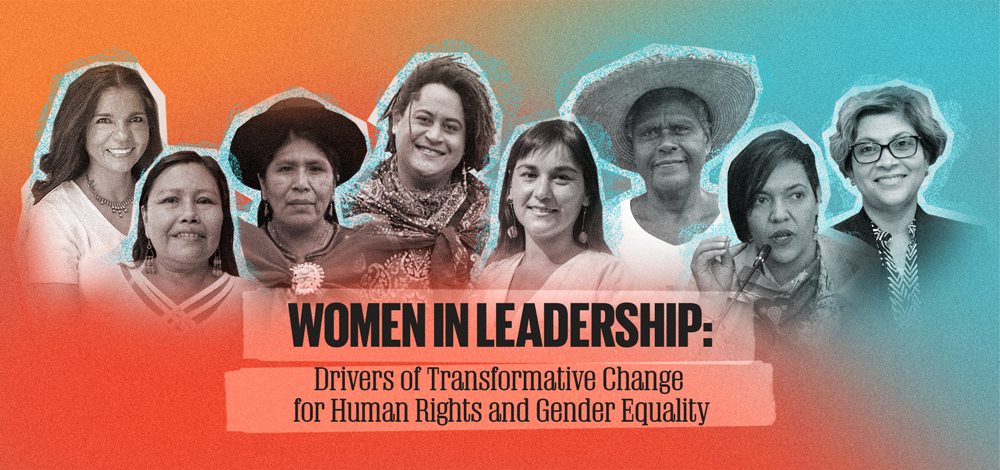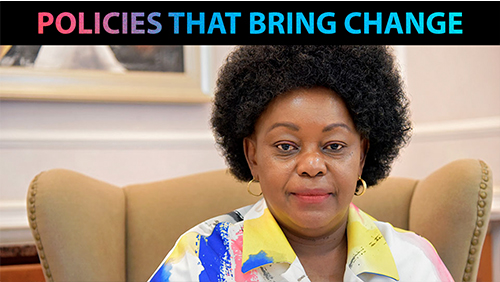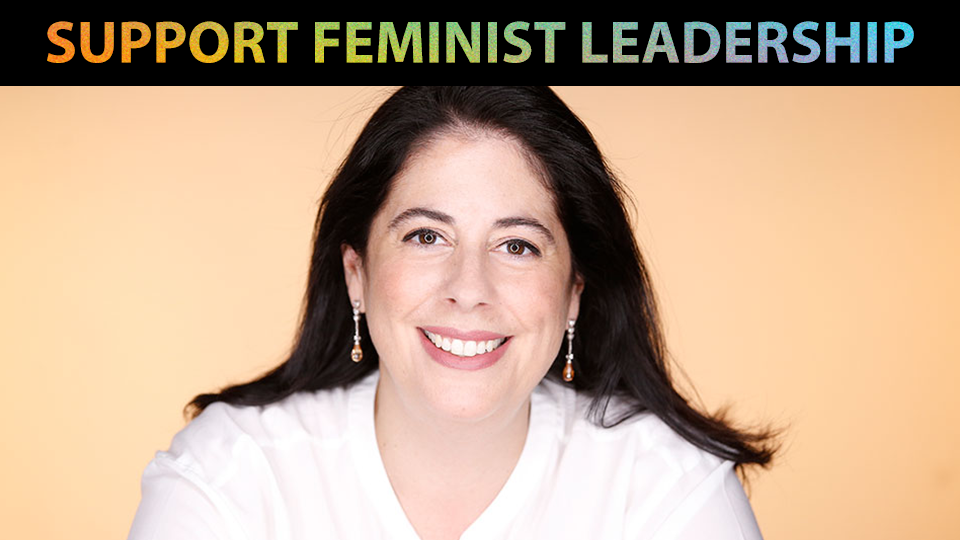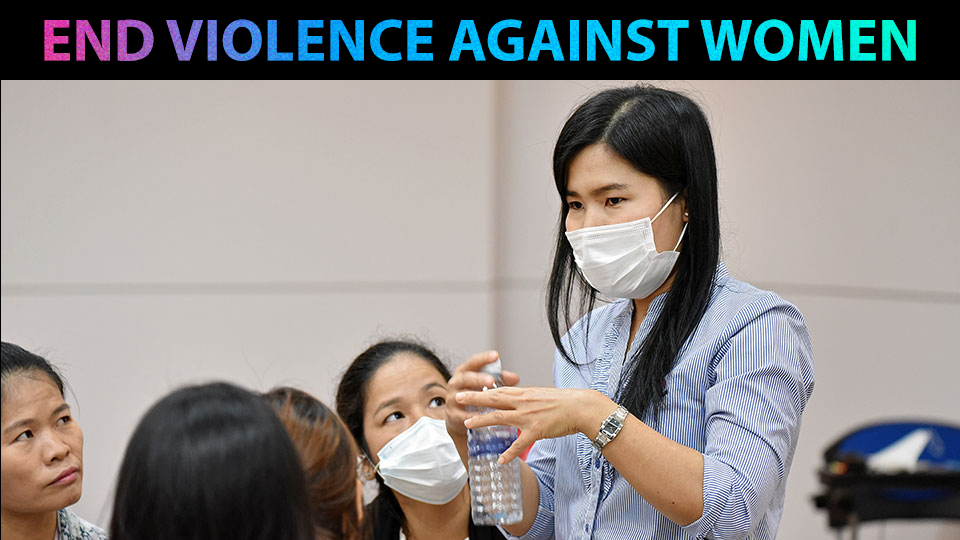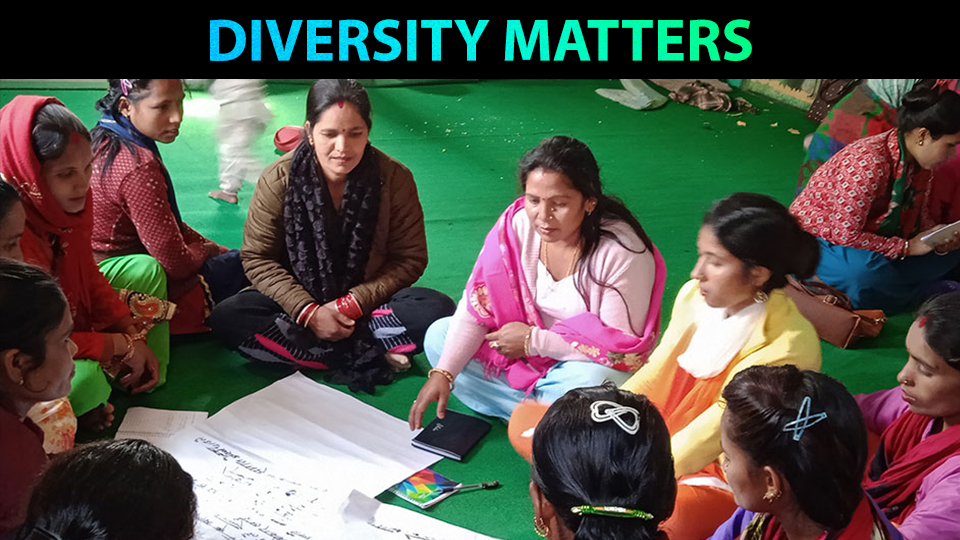In Focus: UN Commission on the Status of Women (CSW65)
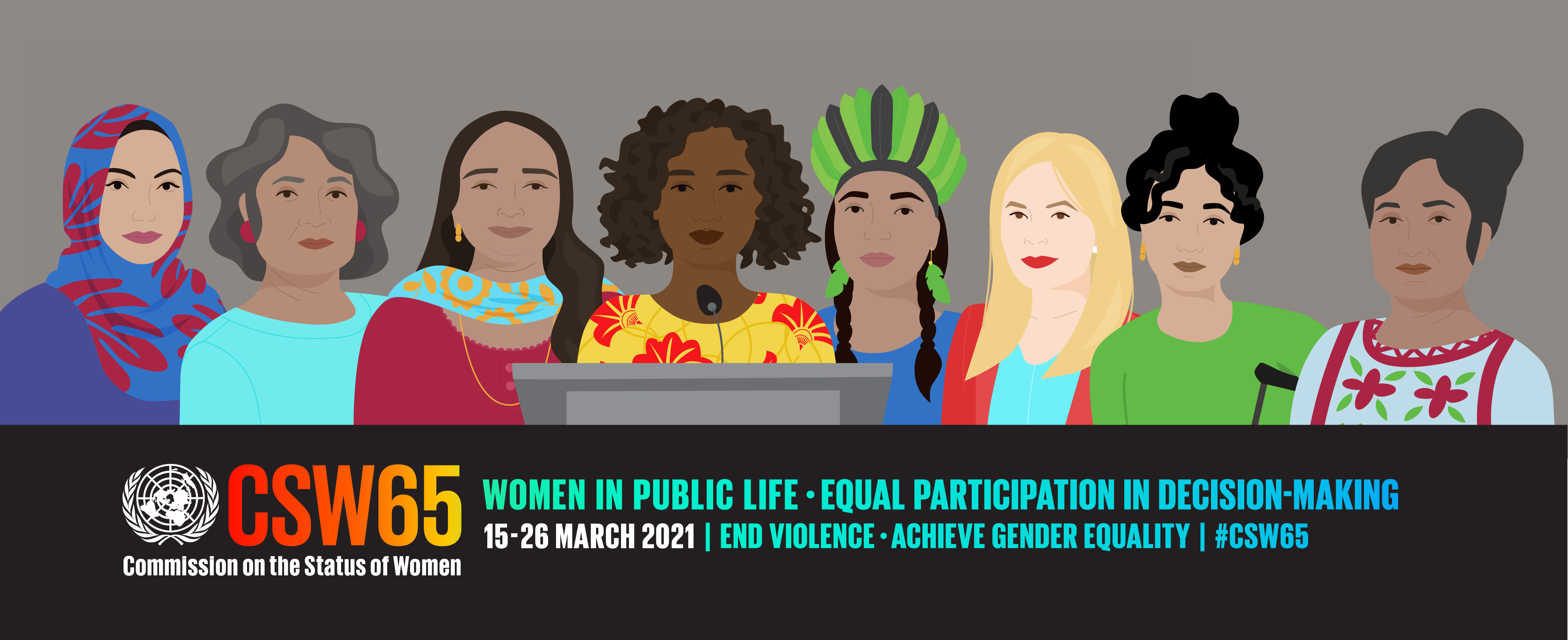
Stories | Video | News | Social media
This year, the 65th session of the United Nations Commission on the Status of Women (CSW65), the UN’s largest annual gathering on gender equality and women’s empowerment, will take place from 15 to 26 March, under the theme, “Women's full and effective participation and decision-making in public life, as well as the elimination of violence, for achieving gender equality and the empowerment of all women and girls”. The session this year will be mostly virtual due to the COVID-19 pandemic.
It is also an important bridge to the Generation Equality Forum, organized by UN Women and co-hosted by the Governments of France and Mexico, in conjunction with youth and civil society, and will be a pivotal opportunity to change our societies and cement women’s leadership as we recover from COVID-19. The Forum will kick-off in Mexico City from 29 to 31 March, and culminate in Paris 30 June to 2 July 2021.
Newly released data shows that progress to achieve gender equality in public life and decision-making has been too slow.
- Women make up 25 per cent of parliamentarians globally, and only three countries have 50 per cent or more women in parliament.
- Less than one per cent of parliamentarians are women under 30 years of age.
- Women make up only 13 per cent of negotiators, 6 per cent of mediators and 6 per cent of signatories in formal peace processes.
- In 2020, only 7.4 per cent of Fortune 500 companies were run by women.
- Just 22 countries in the world are headed by a woman.
At the current rate of progress, it will take another 130 years to reach gender equality at the highest positions of power.
The COVID-19 pandemic has impacted women disproportionately – from loss of jobs to rise in violence against women and unpaid care work. Although women are at the front line of COVID-19 response as healthcare workers, innovators and leaders, their contributions remain less visible and less valued. Only 3.5 per cent of COVID-19 task forces across 87 countries had gender parity.
So, what happens when women lead? Evidence shows that when women are in power, they invest in often-overlooked policy measures – from expanding healthcare and education to green economies and ending violence against women – that ultimately build sustainable and resilient futures.
Building back better from COVID-19 needs women at the centre, leading, making decisions that serve the planet, address inequalities, and achieve equal power-sharing.
Achieving gender equality in leadership and decision-making is possible. Gender quotas in legislatures and other sectors, zero tolerance to violence, special measures that enable women to enter the political pipeline, and dedicated funding to women’s organizations, have proven to be catalytic in bringing change.
Follow the discussions at CSW65, learn more about the impact of equal power-sharing, and what measures can get us there.
Top stories: This is what leadership looks like
Women in Leadership: Drivers of Transformative Change for Human Rights and Gender Equality
Video: What it takes to lead
Throughout history and around the world, women have always displayed exemplary leadership. Yet on this day, despite women’s increased engagement in public decision-making roles, equality is far off. Inclusive and diverse feminist leadership is key to sustained global development as the world continues to confront urgent challenges – from the COVID-19 pandemic to climate change, deepening inequalities, conflict and democratic backsliding.
Social media
- Whether you’re tuning in from the United Nations Headquarters, or from your offices and homes around the world; use #CSW65 and #GenerationEquality to engage online and share how you are participating.
- Take a look at our social media package with messages in English, Spanish and French. Here you will find guidance for coverage, CSW templates, assets, editorial stories and more content.
- Access the latest information on logistics, official sessions and side events through @UN_CSW on Twitter and UN CSW on Facebook.
Around the world
For more news and stories on women's leadership from different regions, see UN Women's regional websites: Africa, Arab States and North Africa, Asia and the Pacific, Europe and Central Asia and Latin America and the Caribbean,
